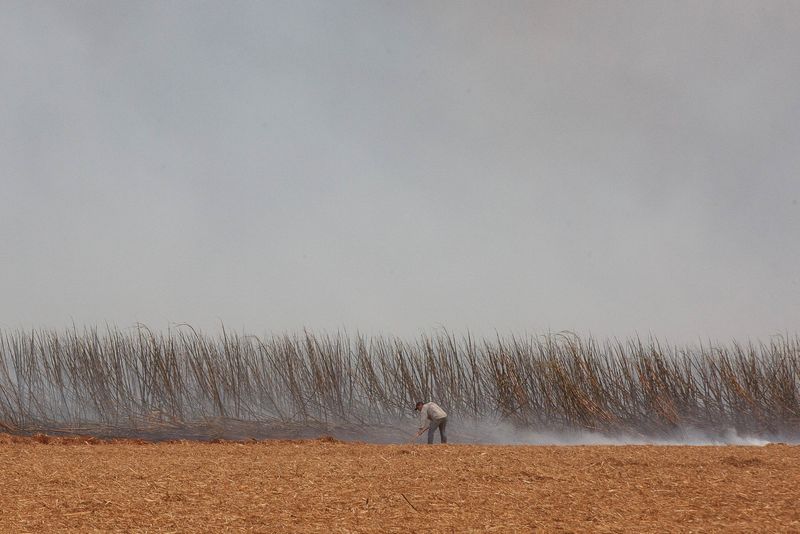By Roberto Samora, Marcelo Teixeira and Andre Romani
SAO PAULO (Reuters) -Two of the largest sugar and ethanol producers in Brazil late on Monday disclosed initial estimates of damages from fires that have burned sugarcane fields in the country's top state for sugar production.
Four men have been arrested on suspicion of setting the fires, which spread quickly amid extremely dry conditions across thousands of hectares of cane fields, burning into the weekend in Sao Paulo state, the largest sugar producing state in the world's top producer and exporter of the sweetener.
Brazil's largest sugar group Raizen SA estimated that about 1.8 million tons of its sugarcane, including what it sources from suppliers, had been affected by the fires, or about 2% of the total expected for its 2024/25 crop.
In a securities filing, Raizen said it did not expect the fires to lead to material losses to its results as it is prioritizing the crushing of the affected sugarcane to mitigate adverse effects.
The burned sugarcane can still be harvested and processed, said Caio Carvalho, a sugar expert with Canaplan consultancy, but added mills will need to rush because the cane starts losing quality after just a couple of days following the burning.
Earlier in the day, Raizen said it had resumed operations at its Santa Elisa mill on Sunday, after fires forced the plant to be evacuated and shut last week.
Sao Paulo said there were no more active fires in sugarcane fields in the state on Monday, but dozens of municipalities were still on high alert for fires.
Another large Brazilian sugar and ethanol producer, Sao Martinho said on Monday in a securities filing that 20,000 hectares of its sugarcane were impacted by the fires.
Sao Martinho maintained its 2024/25 total production guidance, adding it will process the affected cane in coming days but that it expects a reduction in the industrial efficiency in the conversion to sugar.
"As a result, a reduction of 110,000 tons of sugar is estimated, offset by a proportional increase in ethanol production," Sao Martinho said.
It also disclosed additional investments of 70 million reais ($12.7 million) from its initial capex guidance for the 2024/25 crop to preserve productivity in the coming harvests.
Citi analysts said the drought and the fires will likely have a negative impact on the next crop in 2025, since some burned fields had cane growing for the next season.

Brazil's sugar and ethanol industry group UNICA said on Monday it will start to make an assessment of the situation in the fields in the coming days.
($1 = 5.4968 reais)